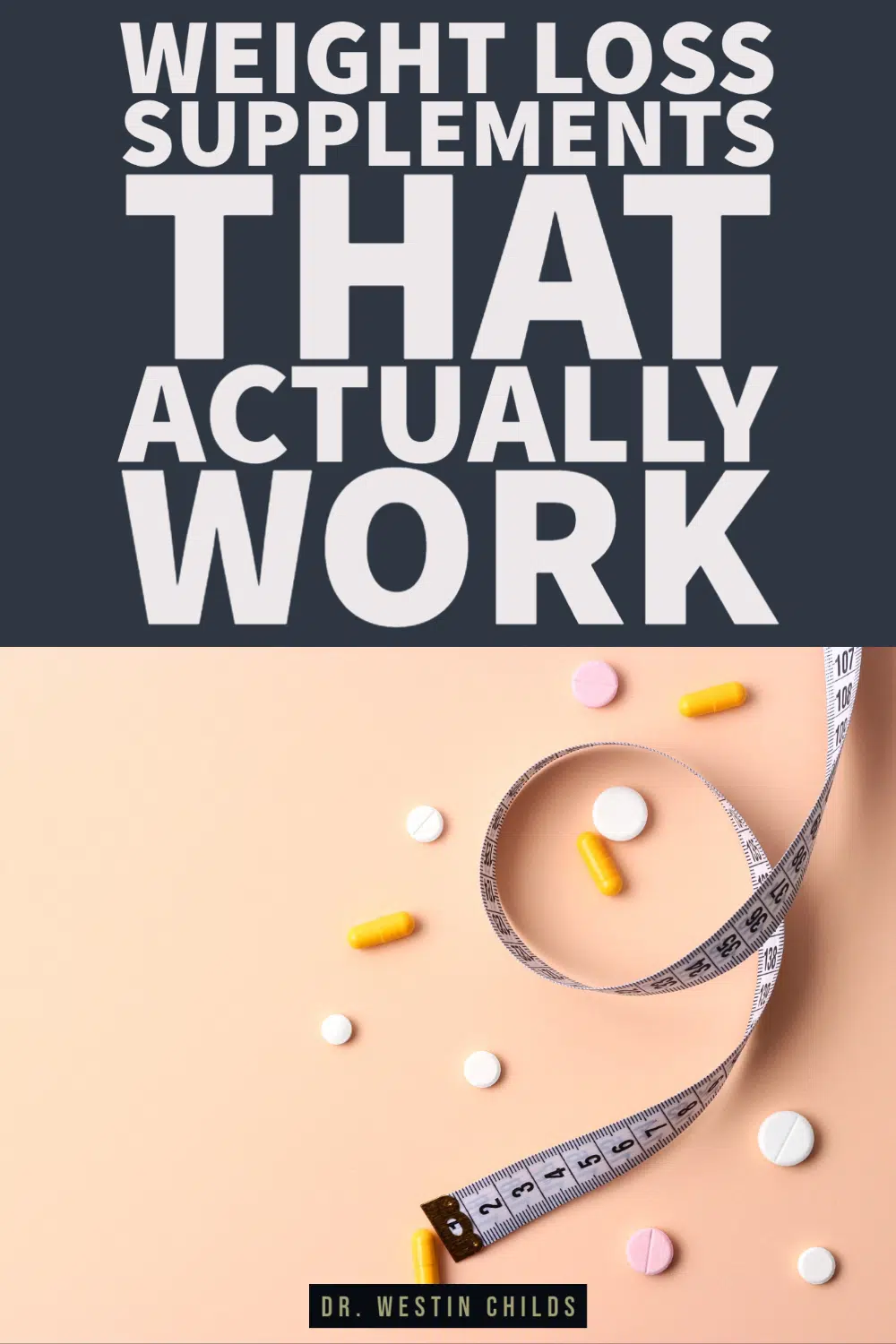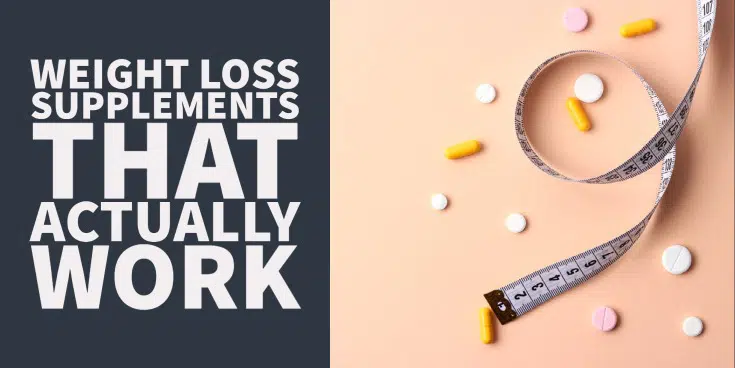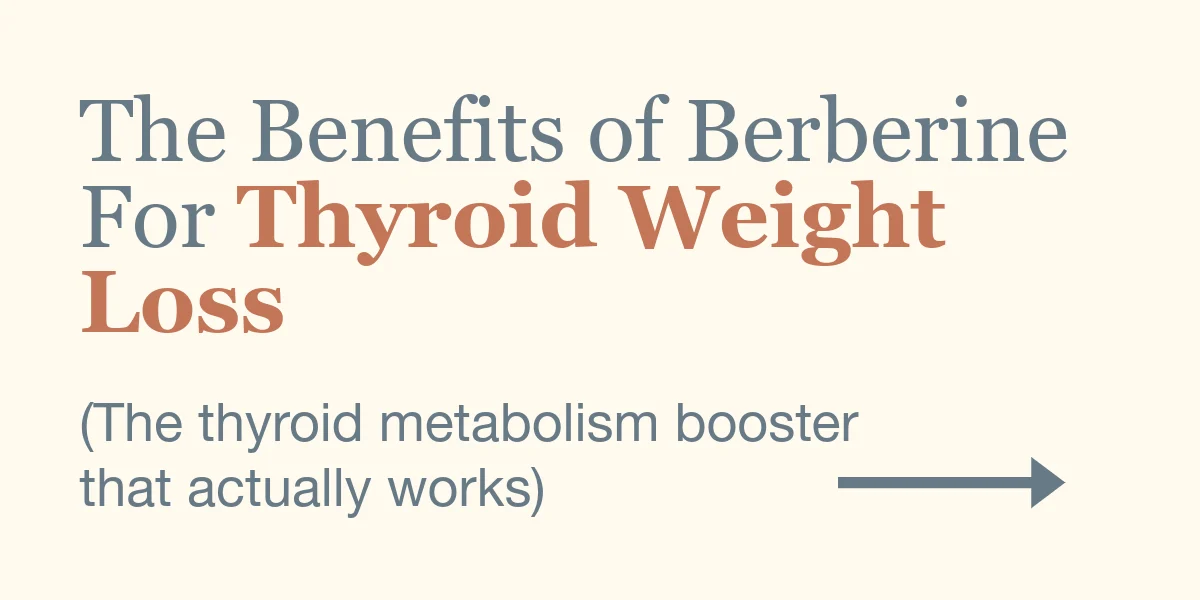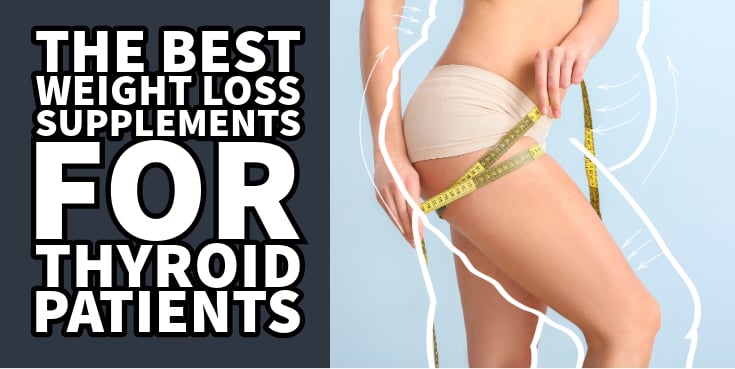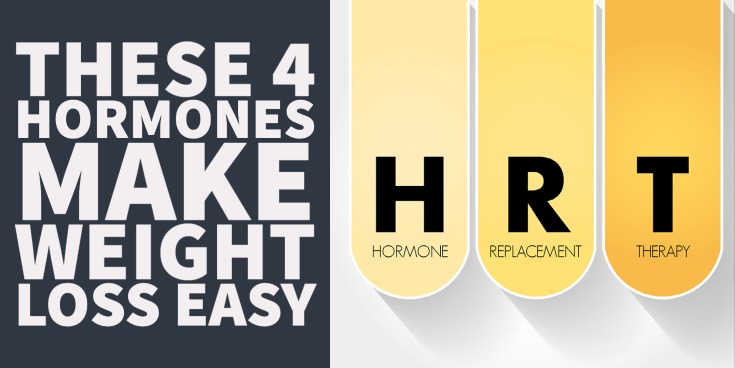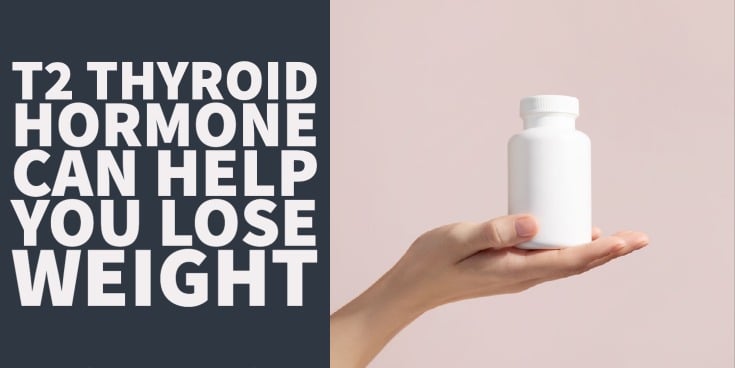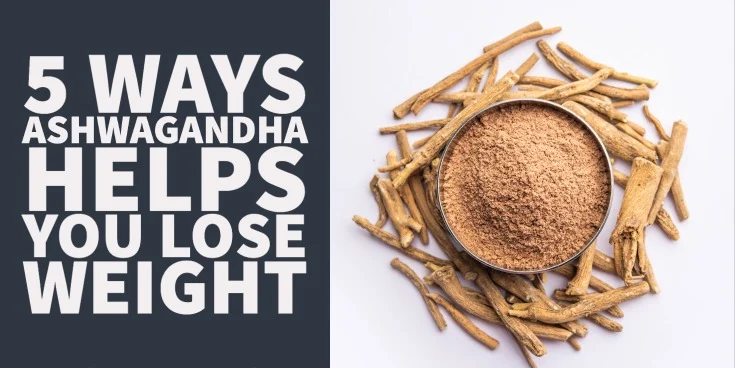Wouldn’t it be nice if you could take some supplements to help you lose weight?
While losing weight is not as easy as just popping a few pills, there are many supplements that have the potential to help you more easily burn fat and build muscle mass.
Doing both of these things simultaneously, often referred to as body recomposition or the turning of fat into muscle, should be the goal of anyone trying to lose weight.
Most people realize the need for weight loss but they fail to realize the importance of building adequate muscle mass in the process (or simply preserving what muscle mass they have while trying to lose weight).
Muscle, just like fat, is a biologically active tissue that not only helps you maintain normal hormone health but also impacts other systems like your metabolism.
The more muscle you have and the more active that muscle is, the better.
Having said that, building muscle mass while losing fat is harder than most people realize which is why it’s often a good idea to recruit as much help as possible during the process!
One way to recruit this help is with the use of targeted, well-studied ingredients that have been proven to be effective.
And that’s exactly what we are going to be discussing today:
Today you will learn which supplements are the most effective for weight loss, how they can help you either build lean muscle mass or help you burn fat, how to use them correctly, and much more.
Let’s jump in…
Will Supplements Help With Weight Loss?
If you’re reading this then there’s a good chance you are probably interested in at least a little bit of weight loss.
And if that’s the case, you aren’t alone.
Based on current statistics, roughly two-thirds of the population of the United States are overweight.
I’m not here to blame anyone or to call anyone out, but I am here to try and help those people who are interested in not being a part of that statistic.
And when it comes to losing weight, I would say a huge part of the problem is in how most people go about it.
People who are overweight have the desire to lose weight, they just don’t necessarily have the requisite knowledge to act.
This gap in knowledge allows for a lot of unscrupulous people and marketing tactics to take advantage of desperate people who are just seeking to feel healthier.
I’m not here to peddle therapies and treatments that are unfounded or unproven, but you should be aware that just because a supplement has been shown to be effective in some studies doesn’t mean it will be effective for you.
The supplements we are going to discuss have all been studied in some capacity and have literary studies showing that they can potentially be effective but the keyword here is “potential”.
Just because a study shows that people lose weight while taking it doesn’t mean that it’s going to work for you (or that you should take the study seriously).
We live in a time where everyone is trying to push their own agenda and this thinking and logic extends into the field of science as well.
In addition to this, you need to be aware that the exact cause of obesity will differ from person to person.
Traditionally, we think of obesity as an “energy imbalance”. (1)
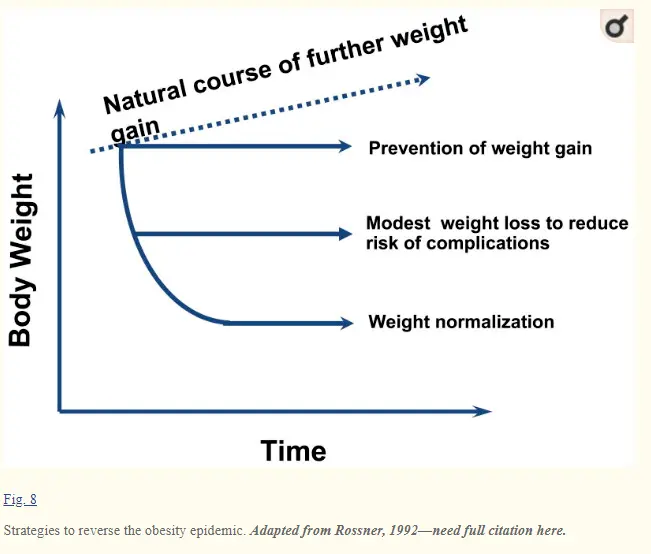
(If only it were that easy!)
That is…
If you want to gain weight you need to eat more calories than you burn.
If you want to lose weight you need to eat fewer calories than you burn.
Over the last several decades, we’ve seen a rise in the number of hours people exercise each week in addition to a rise in obesity rates.
At the same time, we also see a reduction in the number of calories that people consume.
What does this mean?
It means that, despite using the eat less exercise more weight loss advice, people are still gaining weight!
Is it possible that we are approaching the treatment for weight loss in the wrong way?
Is it possible that we don’t quite understand obesity as much as we think we do?
The fact that 99% of diets fail may be a clue that we should take another look at what we think causes obesity.
I think the idea that obesity is always caused by an over-consumption of calories is definitely not as true as we once thought.
We now know that many different problems can cause obesity including the food that we eat, hormone imbalances, stress, dietary patterns, gut health, toxic burden, and so on.
The reason I’m bringing this up is that you need to expand your mind beyond the energy imbalance model of weight gain in order to understand how some of the supplements I’m about to mention work.
If you are focused solely on calories-in and calories-out, then you will miss plenty of supplements that work primarily on your hormones, for instance.
And it is through this mechanism that they may help you to lose weight.
You will see what I mean in just a minute.
Scientifically Proven Supplements
Supplements, just like prescription weight loss medications, all target different pathways, and mechanisms in your body.
But the end result may be the same:
Weight loss.
We can break down weight loss supplements into several main categories:
- Supplements that alter your appetite
- Supplements that help you burn fat
- Supplements that help you build muscle
- Supplements that target insulin, leptin, and other fat-storing hormones
- Supplements that reduce inflammation
- And supplements that contain direct hormones or hormone precursors
Each one of these pathways, if dysfunctional, has been shown to directly or indirectly lead to weight gain and obesity.
The idea here is that if we target these pathways (the more the better) we may be able to impact fat mass and muscle mass.
And this idea may work for many people but there are a few other things you should consider:
- Supplements should never be used in isolation and as your only “weight loss therapy”
- Supplements should always be combined with diet and exercise
- Supplements will be more effective if you use more than one type (combine them together)
- Don’t expect immediate results (it may take several weeks to kick in)
- They don’t work for everyone (and that’s okay, but just realize some trial and error will be necessary)
- Stick to supplements that have at least some studies that show that they are effective (this will help you avoid hype and fads)
With this out of the way, I think we are ready to talk about the supplements that may help you lose weight.
#1. Protein Powder
First on the list is protein powder.
I’m not going to differentiate between which type of protein powder you should or shouldn’t use (but my preference is plant-based forms of protein for weight loss) because how they work is basically the same.
Protein, as a macromolecule, may help promote weight loss through several different mechanisms:
First, through its ability to help promote satiety and reduce the amount of food that you consume (3).
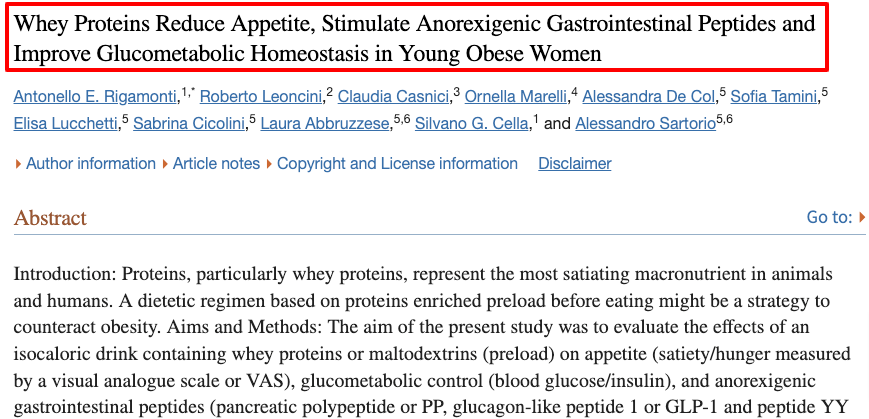
And second, through its ability to help promote the production of lean muscle mass (4) (remember that protein is required for muscle growth and development).
Protein powder is especially effective when combined with diet and exercise programs.
The idea in combining these therapies is that the more muscle mass you can produce, the higher your metabolism will be and the more calories you can burn at rest.
Don’t overdo it on the protein powder, though, as high levels may promote or worsen leptin resistance.
You want enough protein to help maintain and build your muscle mass (based on your activity level) and no more.
For most people, try to get at least 60 grams of quality protein each and every day.
You can use protein powder to more easily get to this value, but the majority of your protein intake should come from natural food sources (not protein powder).
It’s easy to see, though, how an extra 20 grams of protein from protein powder will make it a lot easier to hit this 60 grams per day goal.

It’s also worth mentioning that this 60-gram-per-day goal is really just the floor in terms of requirements.
If you are actively trying to build muscle mass then consuming higher quantities of protein will likely be required.
When using a protein powder, look for one that is clean.
A clean protein powder does not contain added fillers, dyes, preservatives, or artificial flavors.
These added ingredients serve no extra purpose and, while the data on their harm is limited, it’s generally not a good idea to put them into your body if you don’t need to.
There are pros and cons to using different types of protein powders, but my preference is generally for plant-based protein powders that contain a combination of pea, chia, rice, and quinoa.
Blending multiple types of plant proteins allows for a more evenly distributed amino acid blend that more closely mimics what you’d get from animal sources and from whey protein.
Based on my experience, plant-based protein powders are also better tolerated compared to whey-based protein powders as they are generally cleaner at baseline.
There are lots of different protein powders to choose from but I am partial to my own (shocker!) which can be found here.
#2. Collagen
Collagen is really a sub-type of protein powder that contains an array of amino acids not commonly found in the standard American Diet.
The use of collagen, as a protein supplement, can be accomplished through either collagen peptides or through hydrolyzed collagen.
Collagen is exceptionally high in the amino acids proline, glycine, and glutamic acid which play an important role in tissues in your body such as muscles, skin, and hair.
Collagen is sometimes used as a beauty supplement because it is known to help improve the quality of hair and skin.
It may also be effective in helping with weight loss as well.
Even though collagen contains proteins, it is not a replacement for protein powder.
In other words, you wouldn’t want to use collagen in place of protein powder, you’d want to use collagen in addition to protein powder.

This is because of the differing amino acid content in each.
The amino acids found in high quantities in collagen are more helpful for bones, joints, ligaments, skin, and gut health.
Whereas the amino acids found in protein powders (like those mentioned above), are more suited for helping you build muscle mass and manage your appetite.
If you desire the additional benefits that collagen provides to beauty proteins and the structural components of your body, in addition to weight loss, then it can be considered.
But definitely do not consider it a replacement for protein powder.
There’s no shortage of collagen supplements on the market but I’m partial to this one which I’ve personally used in the past.
Before you jump into collagen, though, make sure to check out some of the other supplements listed below.
#3. Berberine
Berberine is a plant-based alkaloid that has been shown to have a powerful impact on insulin, blood sugar, and muscle mass, and one of my personal favorite weight loss supplements.
This impact is so strong that it has even been shown to rival metformin in terms of its efficacy.
In other words, this little ingredient may be just as strong as some prescription medications used to treat insulin resistance and diabetes (at least according to one study).

This is important because a huge number of people have insulin resistance (up to 2/3rds of people in the United States), and insulin resistance is a known contributor to obesity.
When insulin levels are high, your body will have a tendency to store the calories you consume as fat and will be less likely to burn your fat stores for energy usage.
Using berberine, in conjunction with diet and exercise, may result in a decrease in fat mass and an increase in lean muscle mass.
You can learn a lot more about how berberine helps with obesity and weight loss here.
How you use berberine will impact how much you need to take.
If you are using berberine by itself then you will need higher doses, somewhere in the range of 1,000mg to 2,000mg per day.
If you are using it in conjunction with other nutrients (which is my preferred method), then you don’t need those higher doses.
The studies that exist for berberine suggest that you will want to take it for at least 13 weeks but I would recommend using it for even longer.
When using berberine you should be aware that it tends to cause a reduction in your body measurements before it impacts the scale.
This is probably due to its influence on fat-storing hormones like insulin.
This doesn’t mean it isn’t effective, it’s just probably not what many of you are used to.
#4. Fish Oil
Fish oil, as a supplement, may also help promote weight loss.
It most likely does this through its ability to reduce inflammation, improve insulin sensitivity, and by enhancing thyroid function.
As you may or may not know, obesity results in an inflammatory condition in your fat cells known as adiposopathy (7).
The idea is that as fat cells increase, not only do they become larger but they also become dysregulated.
This dysregulation results in changes to the hormones that they secrete and causes conditions such as leptin resistance.
If you want to keep your body weight in check you will need to make sure that you keep your fat cells happy and inflammation free.
Fish oil may promote weight loss by reducing this inflammation and improving insulin levels in the body (8).
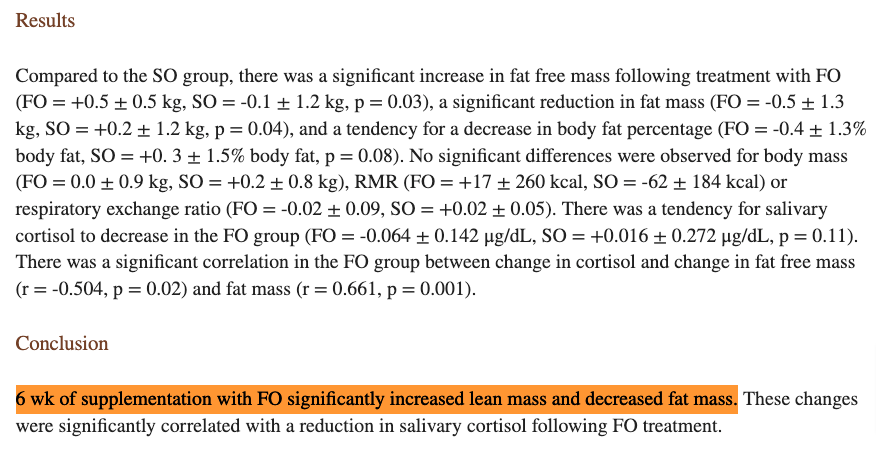
To get these benefits you may need to use doses as high as 2-4 grams of standard fish oil per day.
This is generally a much higher dose than many of you are accustomed to and may require as many as 2-4 capsules of standard fish oil.
You can reduce the dosage needed by using more advanced delivery systems like reesterified fish oil or monoglyceride fish oil.
These fish oils contain delivery systems that improve the bioavailability of omega fatty acids in the fish oil which means you get better results at lower doses.
In some cases, these new types of fish oils are as much as 3x more effective than standard fish oils.
As a weight loss therapy, fish oil tends to work best for those with known inflammatory conditions which is why I like to use it in people who have weight gain and autoimmune disease.
In general, most people do stand to benefit from fish oil, though, so don’t be afraid to give it a try if you aren’t sure if you have an inflammatory condition.
Like berberine, fish oil will likely help you bring inches down on your waistline and body before you see changes on the scale.
Plan to use fish oil daily for at least 3+ months (or longer depending on how much weight you need to lose).
#5. CLA
CLA stands for conjugated linoleic acid and it’s actually a group of fats defined by their shape.
CLA has been shown to improve cholesterol levels, help with weight loss and improve immune function (9).
The reason CLA may help with weight loss probably has to do with how it impacts the burning of fuel in your body and how that impacts your metabolism.
Studies have also shown that using this fat may also suppress your appetite and reduce the number of calories that you consume each day.
You can compare the benefits of CLA to something like MCT oil, which is another supplement and fat that may promote weight loss.
To get these benefits you may need to consume up to 4,000mg (or 4 grams) per day.
CLA should be used in conjunction with diet and exercise for the best results.
CLA is hard to get in high enough doses from just diet alone (even though it is theoretically possible), so supplementing is probably a good idea if this is something you are interested in.
You can use a CLA like this one if you want to take advantage of its beneficial effects.
Just remember, you’ll need to use 4,000 mg per day if you are using it for weight loss.
#6. Glucomannan
Glucomannan, another of my favorites, is a viscous type of dietary fiber.
The way this supplement works for weight loss is different from all of the others that we have discussed so far.
When taken with water, glucomannan expands and turns into a viscous jelly like substance that exerts pressure on your stomach wall.
This pressure on your stomach trigger stretch receptors which then send the signal to your brain that you are full thereby reducing your appetite.

It also has the added effect of slowing down the absorption of food which positively impacts blood sugar and insulin levels as well.
Glucomannan really only works if you take it correctly, though, so here are some tips to help you get the most out of it:
- Take it with a big glass of water (12 ounces or more) 20-30 minutes before your biggest meal – This will help reduce the number of calories you eat during that meal.
- Use it strategically – Think about when you tend to struggle with eating healthy and use it accordingly. You can also use it before you are planning to go out with a group of friends or with your significant other to reduce how many unhealthy calories you would otherwise eat.
- Use it in conjunction with intermittent fasting – Glucomannan makes fasting a lot easier because it can reduce hunger pangs. In addition, it will not break your fast because it is nonabsorbable.
- Use it away from other supplements and medications – The sticky viscous jelly that it creates will delay the absorption of food but also will slow down the absorption of supplements and medications. Taking your supplements and medications 2-4 hours away from whenever you take glucomannan will solve this issue.
It works to help regulate your appetite, help you consume less food (10), and by slowing down the absorption of nutrients and carbohydrates that you consume.
Believe it or not, this supplement has a few studies which show that it can be effective for weight loss.
It’s worth considering, especially if you suffer from insulin resistance or have issues with binge eating or controlling your appetite.
I’ve tested out several forms of glucomannan and have found the best success with propolmannan.
The recommended daily dose is anywhere from 3-6 capsules taken once or twice per day.
#7. Probiotics
Probiotics are not always thought of as weight loss supplements but studies have shown that they may actually help (11).
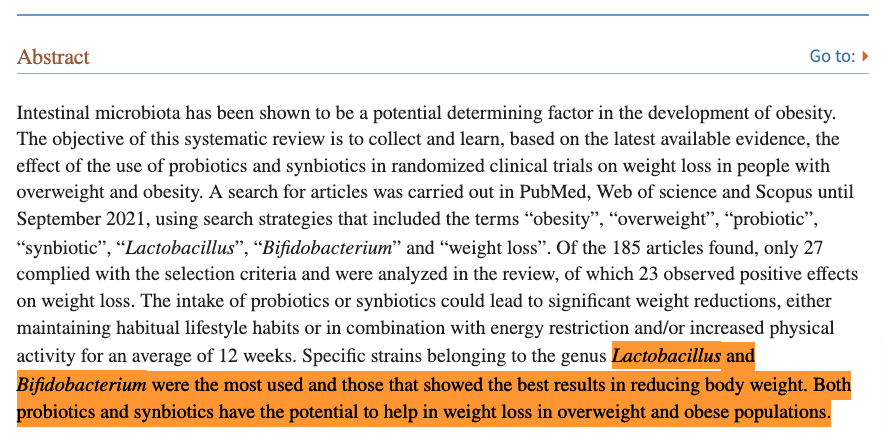
The idea behind how they work has to do with how the bacteria in your gut process and mediate the absorption and breakdown of foods.
Certain bacteria species help you increase and absorb more nutrients when compared to other species.
It seems that the more unhealthy your gut is (based on several factors including your diet), the more calories you will absorb from food.
Taking probiotics allows you to alter your intestinal microbiome and may help promote the growth of healthy species.
As these healthy species grow in population (and crowd out the unhealthy bacteria), you will see changes in secondary messengers which may then impact things like your appetite, cravings for foods, and whole-body inflammatory levels.
The result will be an automatic change in your diet and a bunch of secondary changes which may result in weight gain.
I’m oversimplifying this process here but if you are interested, you can learn a lot more about how it happens here.
If weight loss is your goal and you’d like to use probiotics to help you get there, you should be aware of a few things:
- Higher doses tend to work better for weight loss – You’ll want to use doses of probiotics in the range of 100 billion to 300 billion CFU per day. This is roughly 20x the average CFU dosage of most probiotics.
- Look for probiotics that have diversity in probiotic species – For weight loss, the more species the better.
- Don’t be afraid to take multiple capsules per day (more than the recommended dose) – You may need to take more than one type of probiotic and more than one capsule to get the diversity in species and the dosage necessary for weight loss.
I have had success using this probiotic which contains 350 + billion CFU and 18+ different strains.
#8. Caffeine
Lastly, it’s worth mentioning the stimulant caffeine.
While caffeine can be effective for weight loss in some instances (12), it’s well known and already widely used.
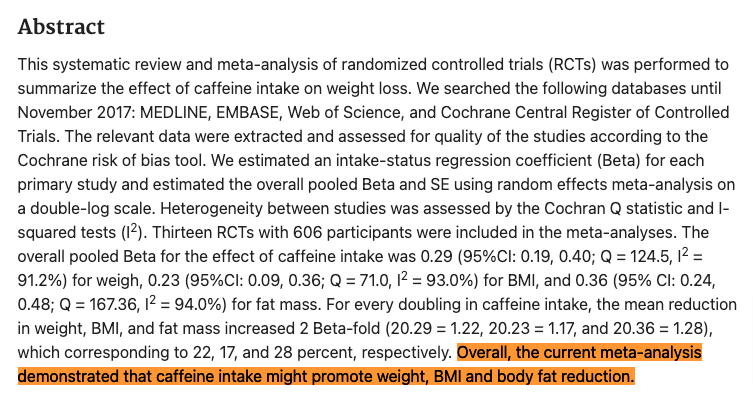
So, if you drink coffee or caffeine already each day, it’s unlikely that using more caffeine will help you lose weight.
But, if you don’t use caffeine on a daily basis, it may be worth a small trial to see if it works for you.
You do need to be careful with caffeine, however, because it can impact your sleep and may lead to insomnia in some people.
If you take it and it impacts your sleep negatively then you may be shooting yourself in the foot as lack of sleep is a potential cause of weight gain.
If you decide to give caffeine a trial make sure you use no more than 50-100mg per day (at the most).
Doses higher than this will result in diminishing returns and will not help.
You can also combine caffeine in pre-exercise supplements to enhance the effectiveness of your workout.
Be careful with this as well, though, because you don’t want to put extra stress on your body unnecessarily.
Remember:
Stress increases cortisol and cortisol may lead to weight gain.
I won’t put any specific recommendations for caffeine here because there are plenty, just be sure to use it wisely if you are going to use it at all!
My personal recommendation would be to stay away from caffeine for weight loss as there are other better options available.
Conclusion
If you’ve been struggling to lose weight and you feel like you need a little extra help then you can check out my weight loss guide which is included in my weight loss supplement bundle.
One last thought…
Do your best to avoid gimmicky or over-hyped therapies that sound too good to be true (because they most likely are).
Instead, focus on the fundamentals that you know will work long-term.
Things like altering your diet to the point that you can maintain a healthy lifestyle, consistent exercise routines that you can keep up with, and supplements that target the problems you are facing.
Now I want to hear from you:
Are you using any supplements right now for weight loss?
If so, which ones?
Did any of the supplements listed here surprise you?
Are you planning on giving any a try?
Leave your questions or comments below!
Scientific References
Kreisberg, Joel. “Learning from organic agriculture.” Explore: The Journal of Science and Healing 2.5 (2006): 450-452.
Fairfield, Kathleen M, and Robert H Fletcher. “Vitamins for chronic disease prevention in adults: scientific review.” Jama 287.23 (2002): 3116-3126.
Wolff, Tracy et al. “Folic acid supplementation for the prevention of neural tube defects: an update of the evidence for the US Preventive Services Task Force.” Annals of Internal Medicine 150.9 (2009): 632-639.
Kelly, GS. “Insulin resistance: lifestyle and nutritional interventions.” Alternative medicine review: a journal of clinical therapeutic 5.2 (2000): 109-132.
Yin, Jun, Huili Xing, and Jianping Ye. “Efficacy of berberine in patients with type 2 diabetes mellitus.” Metabolism 57.5 (2008): 712-717.
Yang, Jing et al. “Berberine improves insulin sensitivity by inhibiting fat store and adjusting adipokines profile in human preadipocytes and metabolic syndrome patients.” Evidence-Based Complementary and Alternative Medicine 2012 (2012).
Hu, Yueshan et al. “Lipid-lowering effect of berberine in human subjects and rats.” Phytomedicine 19.10 (2012): 861-867.
Howarth, Nancy C, Edward Saltzman, and Susan B Roberts. “Dietary fiber and weight regulation.” Nutrition reviews 59.5 (2001): 129-139.
Crawford, Paul. “Effectiveness of cinnamon for lowering hemoglobin A1C in patients with type 2 diabetes: a randomized, controlled trial.” The Journal of the American Board of Family Medicine 22.5 (2009): 507-512.
Venables, Michelle C et al. “Green tea extract ingestion, fat oxidation, and glucose tolerance in healthy humans.” The American journal of clinical nutrition 87.3 (2008): 778-784.
Singh, Uma, and Ishwarlal Jialal. “Alpha-lipoic acid supplementation and diabetes.” Nutrition reviews 66.11 (2008): 646-657.
Mijnhout, Gerritje S et al. “Alpha lipoic acid for symptomatic peripheral neuropathy in patients with diabetes: a meta-analysis of randomized controlled trials.” International journal of endocrinology 2012 (2012).
“A scientific review: the role of chromium in insulin resistance.” 2008. 21 Jul. 2015 <http://www.ncbi.nlm.nih.gov/pubmed/15208835>
Takaya, Junji, Hirohiko Higashino, and Yohnosuke Kobayashi. “Intracellular magnesium and insulin resistance.” Magnesium research 17.2 (2004): 126-136.
Mallappa, Rashmi H et al. “Management of metabolic syndrome through probiotic and prebiotic interventions.” Indian journal of endocrinology and metabolism 16.1 (2012): 20.
Chuengsamarn, Somlak et al. “Curcumin extract for prevention of type 2 diabetes.” Diabetes Care 35.11 (2012): 2121-2127.
Minich, Deanna M, and Jeffrey S Bland. “Dietary management of the metabolic syndrome beyond macronutrients.” Nutrition reviews 66.8 (2008): 429-444.
Zittermann, Armin et al. “Vitamin D supplementation enhances the beneficial effects of weight loss on cardiovascular disease risk markers.” The American journal of clinical nutrition 89.5 (2009): 1321-1327.
